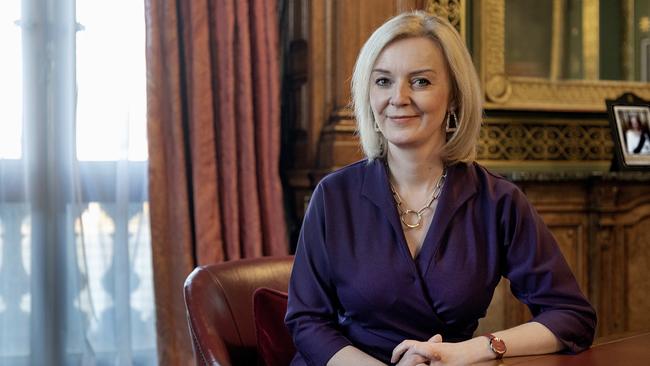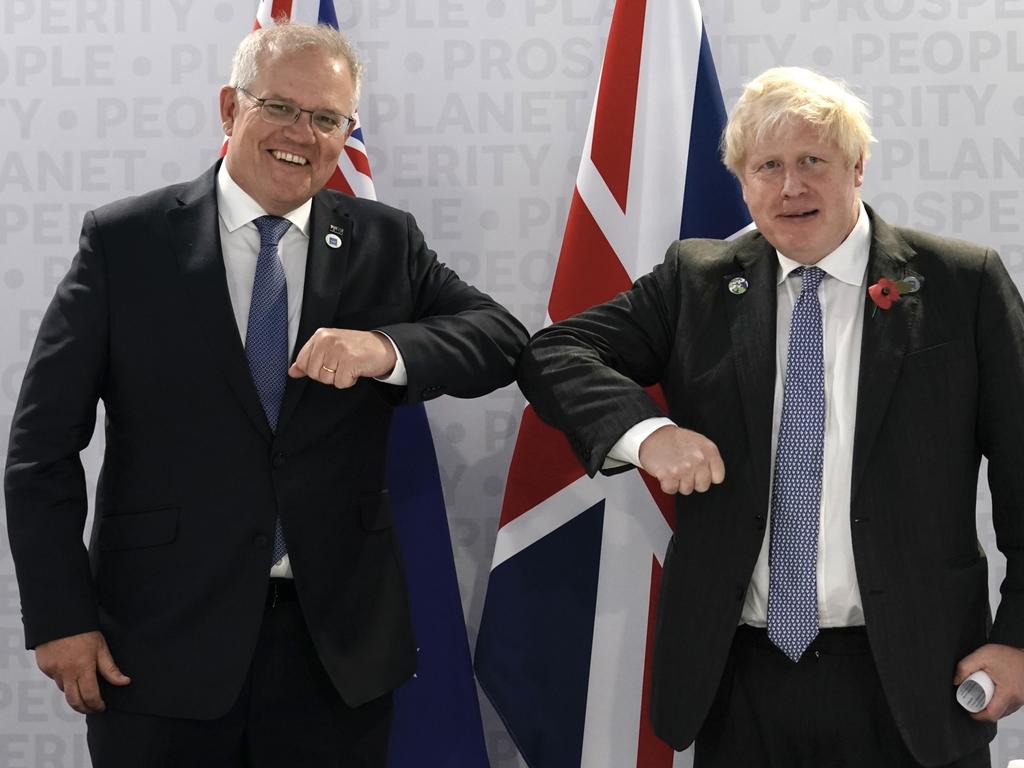British foreign secretary Liz Truss defends rise in wine import duties
British foreign secretary Liz Truss has hit back at concerns raised by the Australian wine industry over proposed changes to how the UK taxes alcohol imports.

British foreign secretary Liz Truss has hit back at concerns raised by the Australian wine industry over alcohol tax changes, saying retaining sovereignty over tax arrangements was one of the key reasons for leaving the EU.
Ms Truss, in an interview, said of the alcohol duty proposal: “UK tax is a matter for the UK and it is non-discriminatory. It is based on decisions that we have to make about our own system.”
Britain, the largest importer of Australian wine by volume, is proposing to replace a complicated excise duty system with new rules based on the amount of alcohol in each beverage. Any drink with an alcohol by volume level above 11.5 per cent will pay more tax.
The industry expects the proposal, if implemented, to divert about $160m from wine to other alcohols – and that Australian red wines will be most affected.
“The changes that we have had to make in alcohol duty are to make it a much more logical system, so you are paying much more for the amount of alcohol in the product,” Ms Truss, the trade secretary through the negotiations of a free-trade agreement with Australia, said. “Before it was very inconsistent,” she added.
The UK government would be unlikely to change its position on the new duty regime despite a consultation under way, she said.
“We retain our sovereignty over our taxes,” she told The Australian. “And one of the reasons that the UK left the EU is that we didn’t have sovereignty over decisions on things like taxes.”
Under the newly signed free-trade agreement, tariffs on Australian wine will be cut by 20p (38c) a bottle – giving the industry a benefit of about $50m. But the sector expects the increase in costs from the new alcohol duty to lift the cost of wines imported from Australian by about £70m.
Tony Battaglene, chief executive of industry lobby group Australian Grape and Wine, said he agreed with Ms Truss that tax was a domestic matter. “But it is unfortunate that the result of the free-trade agreement will be directly impacted by this (tax),” he said.
“We are hoping they will look at it and come to a better solution.
“At the moment, it is very concerning.”
The most recent Wine Australia statistics, for the 12 months to September 30, shows Britain is the single largest export destination for Australian wines – with sales rising 7 per cent in that period to $460m. That compares to a fall of 77 per cent in wine exports to China – to $274m – as trade restrictions scaled back demand.
In that time, exports in almost all price segments to the UK have grown, with exports at an average value over $5 a litre rising 35 per cent in value, the data shows. The growth in premium wine has also meant that Britain had moved from the seventh to the fifth-largest destination of exports over $10 a litre, Wine Australia said.
Treasury Wine Estates, one of Australia’s largest producers, does not split out its sales in the UK, but earnings from Europe, the Middle East and Asia were $46.6m for the 2021 financial year. Volume and revenue growth were led by retail sales in the UK and Europe, the company said in August. Treasury declined to comment.
But Belinda Moore, a research analyst at Morgans, told The Australian earlier this month it would take the company between two and three years to recover earnings lost to the Chinese trade restrictions from new markets.
“This will discriminate against red wine imports,” said Australian Grape and Wine’s Mr Battaglene.
“We estimate it will add 40p to the price of a bottle, and that’s a lot when you’re talking about a wine that is £5.
“The biggest impact will be on the small and medium-sized producers, and we have 700 producers who export to the UK.
“It is just going to mean that people may well shift to other alcohols, the biggest winner being beer and sparkling wine.
“A lot of exports are those family producers that are least able to diversify into other markets.”
Ms Truss, who was due to arrive in Australia even as British Prime Minister Boris Johnson comes under increasing pressure to resign, defended the free-trade agreement in the face of concerns from the wine sector.
“What is great about the Australia trade deal is that we can be as close as close, we can have this fantastic deal where goods go to zero tariffs” she said.
“Every single good will ultimately be zero tariff.
“Young people – the under-35s – will be able to travel, work in each other’s countries.
“It’s going to be much easier for professionals, whether you are a lawyer, an architect, an accountant, to live and work in Australia and the UK,” Ms Truss added.
“We can have all those benefits but we both have our own individual tax systems, we both have sovereignty over our decisions and that’s exactly what the British people want.
“They want us to be closer than close but they want us to make our own decisions.”
In the UK, it is the Wine and Spirit Trade Association that is campaigning against the changes. The government has launched a consultation program, but says public health groups and several economists were among respondents who supported the introduction of a system underpinned by making stronger drinks more expensive.
“They felt that relative to a banded system this could create a stronger incentive to switch to lower-strength products,” one report reads. “Some public health professionals made the point that high-risk drinkers would be more likely to switch to low-alcohol alternatives than to stop drinking altogether.
“Some industry members, predominantly those within the beer industry, supported this idea.”
In a statement, the Wine and Spirit Trade Association said the duty would increase the price of 93 per cent of wine exported from Australia.
“While the changes proposed will affect all wines on sale in the UK, wine from warmer climates like Australia will be affected more than most,” the association said. “The final alcoholic strength of a dry wine is determined by the sugar content of the grapes being used to make the wine and that sugar content is directly linked to the amount of sunshine falling on the vines.”






To join the conversation, please log in. Don't have an account? Register
Join the conversation, you are commenting as Logout